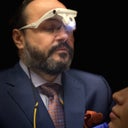Thank you for your question!I believe when you say sickness - you are referring to autoimmune diseases which appears in multiple blog articles on the net. These sources are not trustworthy or accurate. You will also notice that the majority of the articles on the net will site SILICONE implants as the culprit. Even if you agree with those articles, please don't transfer the blame to saline implants.Please understand that there is NO link









